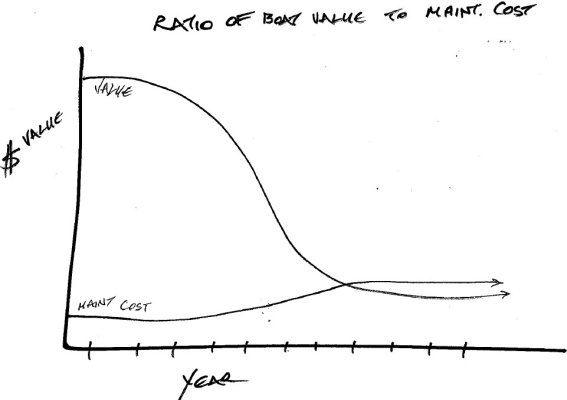Jeff Lebowski
Veteran Member
- Joined
- Jan 6, 2021
- Messages
- 43
Considering a trawler to live on for 5-6 months per year, perhaps more.
In very very rough numbers, say I buy a single-engine boat for 500K and do most of my own wrenching.
What are the costs? Obviously, fuel and food are going to be what I burn and eat.
What about:
Yearly insurance.
Moorings/dockage while cruising.
Approx yearly maintenance.
Hauling, bottom paint etc.
Can these be easily hauled and laid-up on the hard for the winter or is that idiotically expensive?
Thanks for any input.
In very very rough numbers, say I buy a single-engine boat for 500K and do most of my own wrenching.
What are the costs? Obviously, fuel and food are going to be what I burn and eat.
What about:
Yearly insurance.
Moorings/dockage while cruising.
Approx yearly maintenance.
Hauling, bottom paint etc.
Can these be easily hauled and laid-up on the hard for the winter or is that idiotically expensive?
Thanks for any input.

